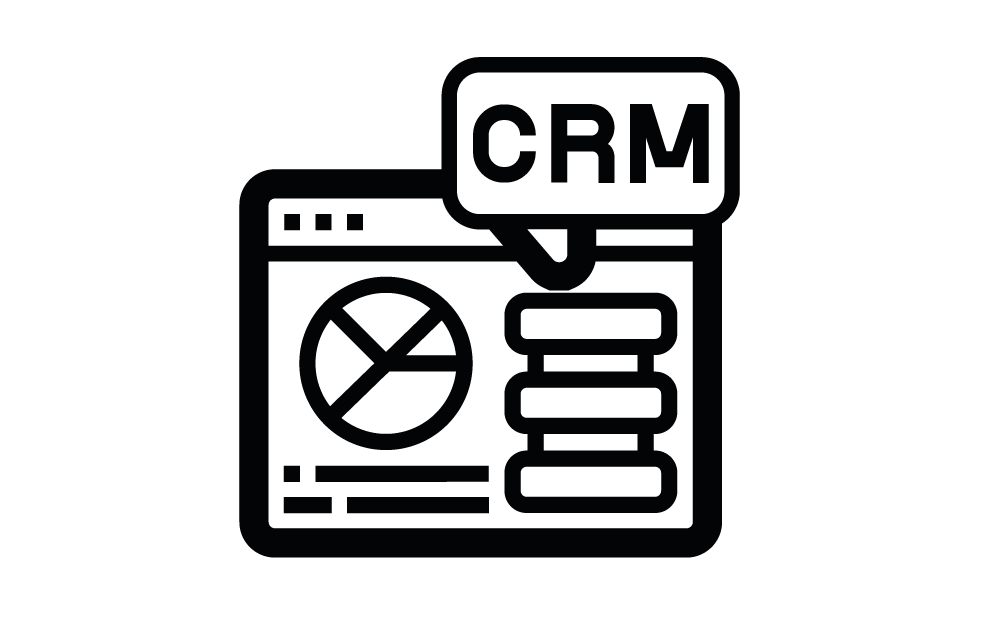CRM software: Optimize your customer relationships
In today's business world, customer relationships are the key to success. To successfully nurture and manage these relationships, companies need efficient technologies and processes. Customer Relationship Management (CRM) software provides just that - a platform that helps you effectively manage interactions with your customers and build long-term relationships. In this article, we will give you a comprehensive overview of CRM software and how it can be used.
What is CRM Software?
Customer Relationship Management (CRM) software is a technology that helps businesses manage, analyze, and improve customer relationships and interactions. By capturing and organizing customer data, CRM software enables companies to effectively manage and customize sales, customer service, and marketing.
Why is CRM software important?
Why is CRM software important?
Centralized customer database: CRM software provides a central platform where all customer data can be stored and managed. This allows you to easily update, analyze, and share customer data. This means you can access the most up-to-date information and make informed decisions at any time.
Improve customer relationships: CRM software allows you to better understand your customers and respond to their needs. By analyzing customer data and interactions, you can create personalized offers and run targeted marketing campaigns. This leads to stronger customer relationships and ultimately higher customer satisfaction.
Increase efficiency: CRM software simplifies and automates many everyday tasks, such as collecting and managing customer data, scheduling appointments, or creating reports. This saves your employees time and allows them to focus on more important tasks.
Sales and marketing optimization: CRM software allows you to track and analyze the sales process. This allows you to adjust your sales strategy to generate and convert more leads. At the same time, the software allows you to plan, execute and evaluate marketing campaigns to develop effective and targeted strategies.
Improved collaboration: CRM software enables your teams to share and manage information and tasks efficiently. This improves collaboration between departments, which in turn leads to faster problem solving and higher productivity.
Possible uses of CRM software
Possible uses of CRM software
Sales management: CRM software enables sales teams to optimize their sales processes by managing leads, tracking sales progress, and analyzing sales opportunities. This enables more efficient pipeline management and helps increase revenue. Customer service and support: CRM software enables customer service teams to centrally store customer data and efficiently handle support requests. With access to all relevant information, employees can address customer concerns quickly and accurately, increasing customer satisfaction.
Marketing automation: CRM systems offer features to automate marketing processes, such as creating and sending email campaigns, managing social media platforms, and running online advertising campaigns. This allows marketing teams to optimize their strategies and create personalized content for different audiences.
Analytics and reporting: CRM software offers extensive analytics and reporting capabilities that help you make important business decisions. You can analyze customer data to identify trends and patterns, evaluate sales performance, and evaluate marketing campaigns to continuously improve your strategies.
Project management: some CRM systems integrate project management features that allow you to efficiently plan, assign, and track projects and tasks. This improves collaboration between teams and helps complete projects on time and within budget.
Choosing the right CRM software
Choosing the right CRM software
When choosing CRM software, there are a few factors you should consider to find the best solution for your business:
Scalability: be sure to choose CRM software that can grow with your business. The system should be flexible enough to add new features and users without sacrificing performance.
Integrations: CRM software should integrate easily with other systems and applications your company already uses, such as email programs, accounting systems or marketing tools.
Ease of use: user-friendly CRM software allows your employees to work with the system quickly and efficiently. Look for an intuitive user interface and good customer support to make it easy to get started.
Security and privacy: make sure the CRM software ensures the security of your customer data and complies with your country's data protection regulations.
Valuefor money: compare the costs and features of different CRM software vendors to find the best value for your business. Also consider the long-term costs of software updates and customer support.
Centralized customer database: CRM software provides a central platform where all customer data can be stored and managed. This allows you to easily update, analyze, and share customer data. This means you can access the most up-to-date information and make informed decisions at any time.
Improve customer relationships: CRM software allows you to better understand your customers and respond to their needs. By analyzing customer data and interactions, you can create personalized offers and run targeted marketing campaigns. This leads to stronger customer relationships and ultimately higher customer satisfaction.
Increase efficiency: CRM software simplifies and automates many everyday tasks, such as collecting and managing customer data, scheduling appointments, or creating reports. This saves your employees time and allows them to focus on more important tasks.
Sales and marketing optimization: CRM software allows you to track and analyze the sales process. This allows you to adjust your sales strategy to generate and convert more leads. At the same time, the software allows you to plan, execute and evaluate marketing campaigns to develop effective and targeted strategies.
Improved collaboration: CRM software enables your teams to share and manage information and tasks efficiently. This improves collaboration between departments, which in turn leads to faster problem solving and higher productivity.
Sales management: CRM software enables sales teams to optimize their sales processes by managing leads, tracking sales progress, and analyzing sales opportunities. This enables more efficient pipeline management and helps increase revenue. Customer service and support: CRM software enables customer service teams to centrally store customer data and efficiently handle support requests. With access to all relevant information, employees can address customer concerns quickly and accurately, increasing customer satisfaction.
Marketing automation: CRM systems offer features to automate marketing processes, such as creating and sending email campaigns, managing social media platforms, and running online advertising campaigns. This allows marketing teams to optimize their strategies and create personalized content for different audiences.
Analytics and reporting: CRM software offers extensive analytics and reporting capabilities that help you make important business decisions. You can analyze customer data to identify trends and patterns, evaluate sales performance, and evaluate marketing campaigns to continuously improve your strategies.
Project management: some CRM systems integrate project management features that allow you to efficiently plan, assign, and track projects and tasks. This improves collaboration between teams and helps complete projects on time and within budget.
When choosing CRM software, there are a few factors you should consider to find the best solution for your business:
Scalability: be sure to choose CRM software that can grow with your business. The system should be flexible enough to add new features and users without sacrificing performance.
Integrations: CRM software should integrate easily with other systems and applications your company already uses, such as email programs, accounting systems or marketing tools.
Ease of use: user-friendly CRM software allows your employees to work with the system quickly and efficiently. Look for an intuitive user interface and good customer support to make it easy to get started.
Security and privacy: make sure the CRM software ensures the security of your customer data and complies with your country's data protection regulations.
Valuefor money: compare the costs and features of different CRM software vendors to find the best value for your business. Also consider the long-term costs of software updates and customer support.

CRM software is an indispensable tool for any company that wants to maintain and optimize its customer relationships. By centrally managing customer data and automating sales, marketing and customer service processes, CRM software can help increase your company's efficiency.
